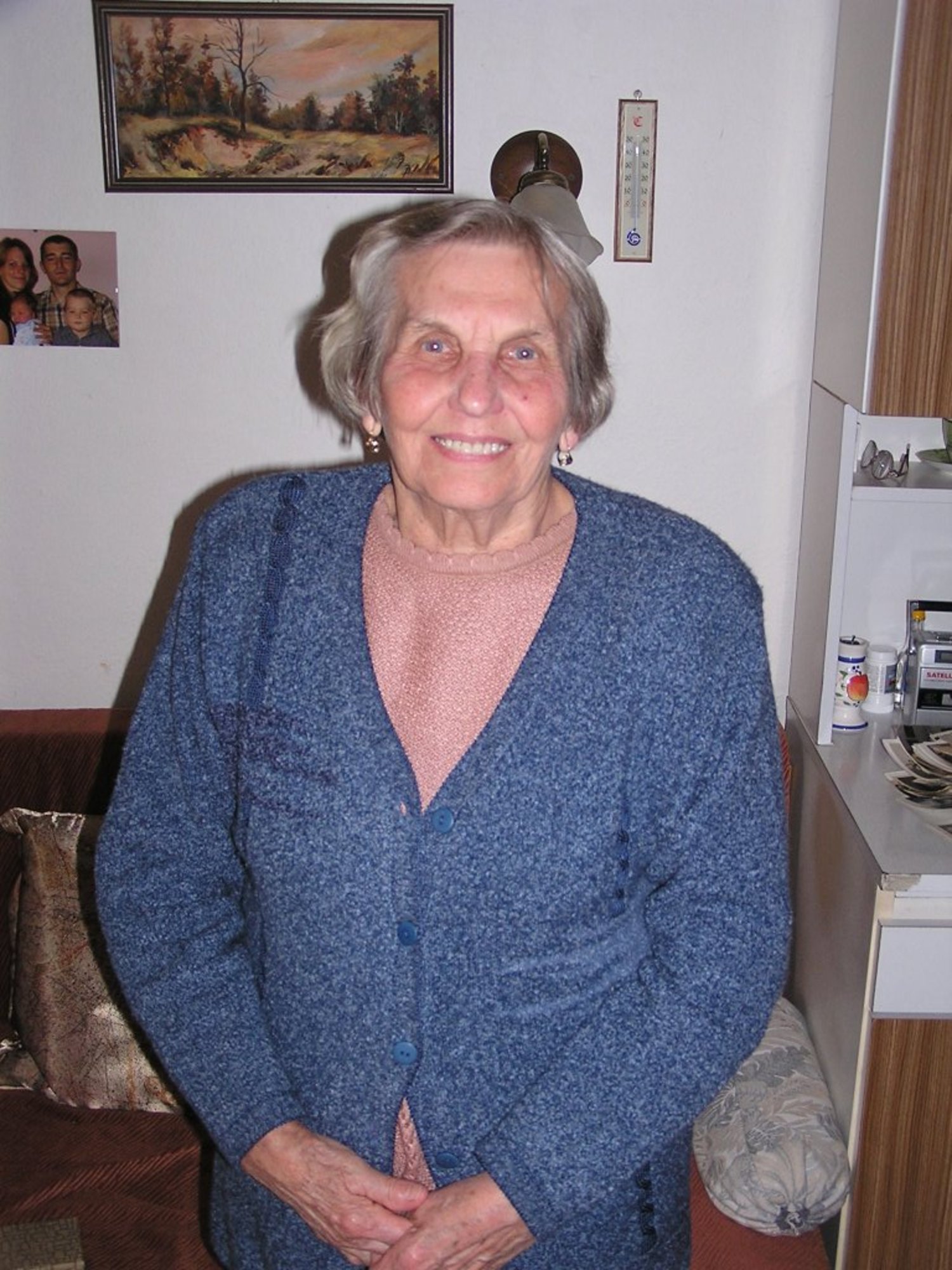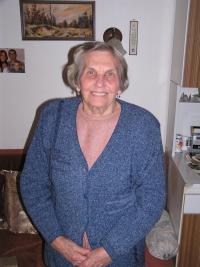My mother was burned to death in a village called Ukrajinsky Malin with my aunt. They were driven into a barn. There we found them.

Download image
Antonie Kechrtová, born with the name Beštová, was born on the 24th of December in 1920 in Český Malín, Volhynia. Her parents, Věra and Josef, owned a large farm, including twenty colonies of bees. Antonie Kechrtová had two younger sisters. She attended local Czech elementary school in Malín, and later a Polish one in Maczkowce. Life went on quite normally in Malín after the Nazi occupation until the 13th of July in 1943. On that day, Germans burned the village down and massacred all its inhabitants. Antonie Kechertová escaped the massacre accidentally. She left the village with few people for shopping in a nearby town just before the Germans arrived. Kechrtová lost her whole family except her uncle. Her parents were murdered in a nearby village Ukrajinský Malín. Her mother was burned to death in a barn; her father was shot to death fleeing. Antonie Kechertová remained in Malín at her uncle’s house with few survivors until the end of the war. Among them was her future husband. They got married in 1946. After the war, they moved to Czechoslovakia in 1947 under the repatriation act of Czech community from Volhynia. At first they ran a farm in Nový Malín, but later they sold it and bought a pottery business instead. They had three children: son Rostislav and twins Věra and Antonín. They have been living since in Nový Malín.
